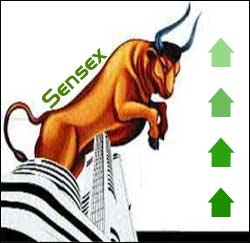There are several terms which are commonly used with reference to capital market. Several such terms have already been discussed in the previous articles. Understanding of following terms (given in alphabetical order) will help the readers in better grasping the structure and trading system in the capital market in India : Arbitrage: Arbitrage refers to taking advantage of price differential in a particular security on to different stock exchanges. An investor/speculator can sell at one stock exchange and buy the same at lower price at other stock exchange. The difference in prices is the profit of the investor/speculator. Categories of Shares at BSE: At the Mumbai Stock Exchange, the shares have been categorised in different categories such as A, B1, B2, S, T, TS and Z. Categories A , B1 and B2 depend upon the volume and turnover of different shares on the BSE. S group is called BSE Indonext, Continue reading
Financial Concepts
Listing and Delisting of Securities at Stock Exchanges
Listing of Securities at Stock Exchanges Listing means formal admission of a security into a public trading system of a stock exchange. A security is said to be listed when they have been included in the official list of the stock exchange for the purpose of trading. The prime objective of admission to dealings cm the stock exchange is to provide liquidity and marketability to securities and also to provide a mechanism for effective management of trading. The securities listed in stock exchanges may be of any public limited company, central or state government, quasi-government and other corporations or financial institutions. To make a security eligible to be listed in a stock exchange, the company shall be obligatory to fulfill all the listing requirements specified in the Companies Act of 1956. Besides the company is also compulsorily to discharge the listing norms issued by SEBI from time to time and Continue reading
Some Facts about Over The Counter Exchange of India(OTCEI)
In 1992 , to provide improved services, the country’s first ring less, scrip less and electronic stock exchange Over The Counter Exchange of India(OTCEI) was created by some of the prominent financial institutions like UTI, ICICI, IDBI , SBI Capital Markets, IFCI, GIC, Canbank Financial Services. The trading at OTCEI is done over the centers across the country. The securities traded at OTCEI are classified into listed securities, permitted securities and initiated debentures. The feature of this exchange is that instead of share certificate, a counter receipt is generated out at the counter which substitutes the share certificate and the same is used for all transactions. Recommended Reading: Over The Counter Exchange of India(OTCEI) Trading on OTCEI Trading on Over The Counter Exchange of India(OTCEI) is the first of its kind in India. It is fully computerized set-up where trading takes place through a network of computers at the member/dealer Continue reading
Structure and Trading System in Secondary Market
The securities market has essentially three categories of participants, viz., the issuer of securities, investors in securities and the intermediaries. The issuers are the borrowers or deficit-units, who issue securities to raise funds for their business activities. The investors, who are surplus savers, deploy their savings by subscribing to these securities and issue funds for the business activities. The intermediaries are the agents who match the needs of users and suppliers of funds for a commission. The secondary market or the stock exchange system in India is represented by 23 stock exchanges including the National Stock Exchange of India(NSE), the Over The Counter Exchange of India, the Inter connected Stock Exchange of India and 20 other stock exchanges located at different places. However at present, trades take place only at NSE and BSE and other stock exchanges have become redundant. The operations of stock exchanges are regulated, supervised and controlled Continue reading
Difference Between Money Market and Capital Market
In order to understand what the differences between things are you first need to understand what each of the items is. In this case before you can understand the difference between money market and capital market you are going to need to understand what money market is and what capital markets is. Once you understand the two items are it will be easier to see what the difference or differences are between the two markets. What is Money Market? Basically the money market is the global financial market for short-term borrowing and lending and provides short term liquid funding for the global financial system. The average amount of time that companies borrow money in a money market is about thirteen months or lower. Some of the more common types of things used in the money market are certificates of deposits, bankers’ acceptance, repurchase agreements and commercial paper to name a Continue reading
Introduction to Financial Instruments
Often investors invest through financial assets or financial instruments or securities. Investments that represent debt, ownership of a business or a legal right to acquire a part of ownership interest in business are called securities. There are a number of financial instruments which are traded in the money market. The important financial instruments are Treasury Bills, Certificates of Deposits, Commercial Bills, Commercial Papers, etc. The money market instruments have maturity period upon one year. Money market instruments are highly liquid, short-term debt instruments which mature in less than 12 months, and normally pay continuously varying returns. These involve no or very little degree of risk. The money market instruments pay return to investors in the form of discount at the time of issue. On the other hand, Capital market has instruments of longer maturity period. These instruments are : Ownership Securities : Equity Shares, Preference Shares, and Cumulative Convertible Preference Continue reading
